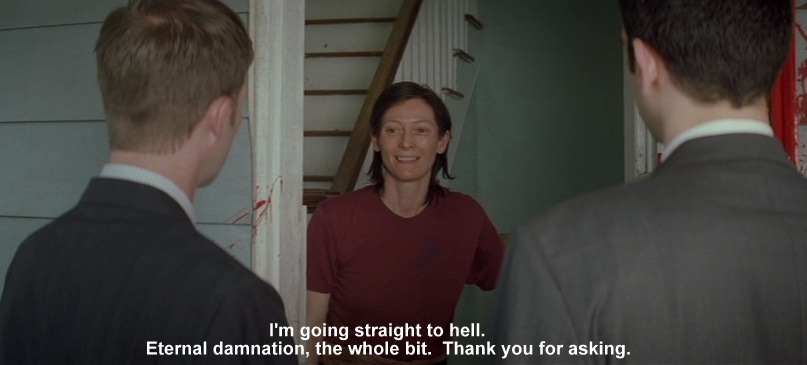
“America is now wholly given over to a damned mob of scribbling women,
and I should have no chance of success while the public taste is occupied
with their trash.”

Things that were said about writing by women:
- that it was weak, vapid, and pastel, as in strong “masculine” rhymes and weak “feminine” ones;
- that it was too subjective, solipsistic, narcissistic, autobiographical, and confessional;
- that women lacked imagination and the power of invention and could only copy from their own (unimportant) lives and their own (limited, subjective) reality — they lacked the power to speak in other voices, or to make things up;
- that their writing was therefore limited in scope, petty, domestic, and trivial;
- that good female writers transcended their gender; that bad ones embodied it;
- that writing was anyway a male preserve, and that women who invaded it felt guilty or wanted to be men;
- that men created because they couldn’t have babies; that it was unfair of women to do both; that they should just have the babies, thus confining themselves to their proper sphere of creativity.
The double bind: if women said nice things, they were being female, therefore weak, and therefore bad writers. If they didn’t say nice things they weren’t proper women. Much better not to say anything at all.
Any woman who began writing when I did, and managed to continue, did so by ignoring, as a writer, all her socialization about pleasing other people by being nice, and every theory then available about how she wrote or ought to write. The alternative was silence.
- Margaret Atwood, from If You Can’t Say Something Nice, Don’t Say Anything At All
OTHER DEPRESSING LINKS
J.R.R. Tolkien heavily influenced by obscure female writer? from Reel Girl
Women Writers And Bad Interviews, from Talking Writing
Naipaul says no woman writer is any good.
Women Still Not Equal In Writing World from The Rumpus
Linda Leith says it’s because women are not submitting in the same numbers.
Prikipedia? Or, Looking For The Women On Wikipedia from The Chronicle
TV Writing Remains A White Man’s World from The Wrap TV
Hey TV Networks! Hire some women writers! from Bitch Media
Has Virago changed the publishing world’s attitude towards women? from The Guardian
Where Are The Women Kerouacs? from Salon
My So-Called ‘Post-feminist’ Life In Arts And Letters from Deborah Copaken Kogan
15 Great Female Film Critics You Ought To Be Reading from Flavorwire
Why Is The Women’s Fiction Prize A Thing? asks Book Riot, then answers it.
Sexism and Silence in the Literary Community from Huffington Post
TOP TEN TUESDAY: WOMEN WRITERS WHO DESERVE MORE RECOGNITION, For Book’s Sake
Why are op-eds written by women more prone to verge on the personal? There is nothing inherently wrong with first-person narratives, but there can be too much of a good thing at The Guardian
Danielle Steel on being asked if she’s “still” writing: “I think it is something that only men do to only women, and not just to me” from The Hairpin
Women who write erotica get asked different things from men who write erotica, explained here.
The work of Carol Ann Duffy, the Poet Laureate, has been compared to “Mills & Boon” authors in a damning attack by the Oxford Professor of Poetry
Did A Debut Writer Get Bullied On Goodreads? from Salon
28 Female Thinkers You Should Know, Even If Wired Magazine Doesn’t from Huffington
Editor Tries to Mansplain Gender Disparity, Fails Miserably from The Atlantic Wire
Sleeps With Monsters: Reading, Writing, Radicalisation from Tor
Masquerading as Male in Crime Writing: A Pseudonym Story from Women Writers, Women Books
A Picture Says It All Or Does It? Judging an Author by Their Photo from The Daily Beast
Why I Only Read Books by Women in 2013 from Flavorwire


































